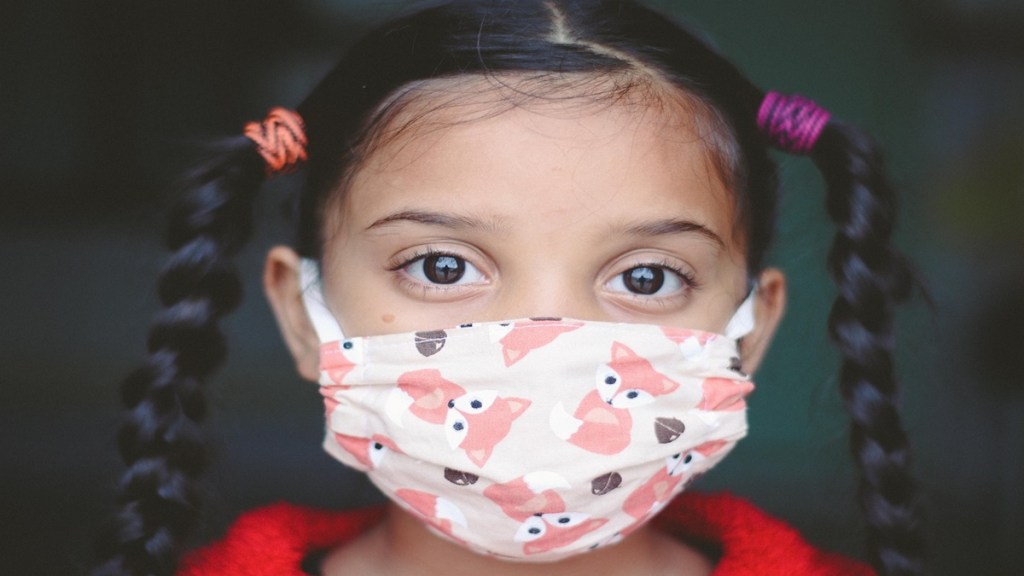Air quality and respiratory health of Children: As Delhi wakes up to the Diwali week, the air quality was in the ‘Very Poor’ category as the overall AQI was recorded at 330 at 7 am in the city, as per SAFAR data.
Several areas in the capital saw the air quality of over 300 points while some also saw the AQI above 350. The Air Quality Index (AQI) values for the measurement of air quality range from 0 to 500. According to Dr. Rahul Kendre, Lung Transplant Physician and Interventional Pulmonologist, DPU Super Specialty Hospital, Pimpri, Pune, any value over 100 means the air is unhealthy, while values over 300 measure serious health effects or even lead to death, especially amongst susceptible subjects such as asthma sufferers with respiratory conditions such as bronchitis and interstitial lung disease.
What should you do?
- Sensitive persons, or those with respiratory issues, should avoid being outdoors for extended periods when the AQI is at 300 and above.
- Avoid Ventilation: Stay inside as much as possible on the day the AQI rating is high.
- Do not Highly Exert Yourself: Stay indoors on the day with low AQI and do not engage in strenuous outdoor exercises.
- Lock Up Your House: Close all doors and windows to reduce indoor pollution.
- Use Air Cleansing Devices: Invest in a HEPA filter air purifier to improve indoor air.
- Scheduled Maintenance Service your cooling device regularly
- Indoor Pollutants Reduction Avoid smoking, burning candles or incense, and the use of extreme cleaning chemicals indoors
- No Smoking Indoor smoking has seriously degraded indoor air quality. Smokefree room preserves lung health
- Check Your AQI Keep track of current day AQI values available through local news or mobile apps to tailor your day-to-day activities better
- Reduce Vehicle Emission: Take public transport, ride-sharing, and bicycles to reduce car emissions. Environment-friendly transport facilities should be introduced by the government.
- Support Urban Green Area Developments: Green areas in the urban space work like a filter by removing pollutants that clean the air.
- Community Education: Support actions that create an awareness program to inform residents about the reduction of air quality through acts of pollution.
“Improving lung health due to poor air quality requires cooperative efforts at both individual and community levels to reduce the effects of adverse health impacts arising from air pollution,” Dr. Kendre told Financial Express.com.
How poor air quality affects children?
Children’s Environmental Health Collaborative (CEHC) emphasises that air pollution poses severe risks to children’s health, causing respiratory infections, asthma, cognitive developmental and lifelong health issues.
Air pollution was the second leading risk factor for death among children under five in 2021, after malnutrition. Air pollution was linked to a total of 709,000 deaths in children under 5 years old, according to the 2024 State of Global Air.
United Nations Children’s Fund (UNICEF) highlights that children are physically more exposed to air pollution for several reasons. “Young children breathe more rapidly than adults and take in more air relative to their body weight. They often spend more time outdoors and breathe air that is closer to the ground, which puts them in closer proximity to sources of pollution like dust and vehicle exhaust. Children also spend a significant amount of time indoors, and so may be significantly affected by household air pollution,” it stated.
Moreover, children are physiologically more vulnerable to air pollution than adults because their brains, lungs and other organs are still developing. Some air pollutants can cross the placenta and affect developing babies. Air pollution can also affect lung function and development, which continues through adolescence, CEHC stated.
Air pollution can also trigger asthma and childhood cancer. Children who have been exposed to high levels of air pollution may be at greater risk for chronic diseases, such as cardiovascular disease, later in life.
How to protect children from air pollution?
Here are some measures to keep children safe from the impacts of air pollution:
- Keep children indoors when air pollution levels are high;
- If they must go out, protect them with a filtering and well-fitted mask;
- Install window and air filters at home, if possible;
- Use cleaner fuels and technologies to cook, heat and light your home, where possible; and
- Provide children with food and drinks high in vitamin C, E and Omega-3 antioxidants.
